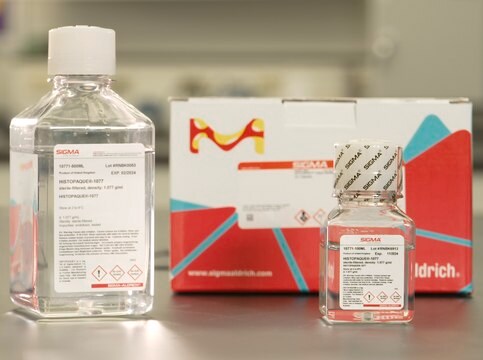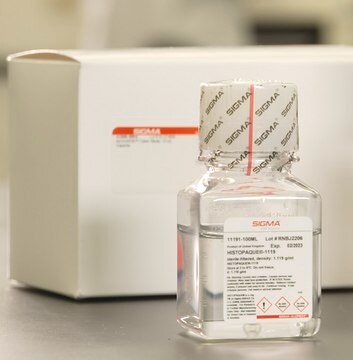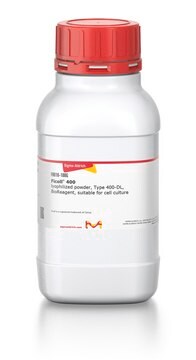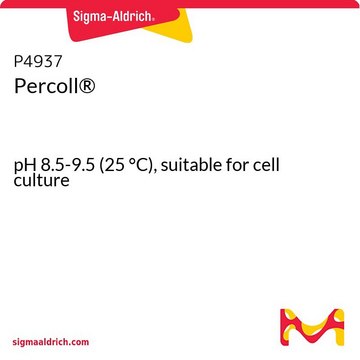H8889
Histopaque®-1077 Hybri-Max™
liquid, sterile-filtered, BioReagent, suitable for hybridoma
Synonym(s):
Histopaque 1077
About This Item
Recommended Products
sterility
sterile-filtered
Quality Level
product line
BioReagent
form
liquid
technique(s)
cell culture | hybridoma: suitable
single cell analysis: suitable
impurities
endotoxin, tested
density
1.077 at 25 °C (relative density)(lit.)
storage temp.
2-8°C
General description
Application
- peripheral blood mononuclear cells (PBMCs) from heparinized blood by gradient centrifugation
- immune cells (lymphocytes) from peripheral blood
- PBMCs from blood
Legal Information
Not finding the right product?
Try our Product Selector Tool.
related product
Signal Word
Danger
Hazard Statements
Precautionary Statements
Hazard Classifications
Resp. Sens. 1 - Skin Sens. 1
Storage Class Code
12 - Non Combustible Liquids
WGK
WGK 3
Flash Point(F)
Not applicable
Flash Point(C)
Not applicable
Personal Protective Equipment
Certificates of Analysis (COA)
Search for Certificates of Analysis (COA) by entering the products Lot/Batch Number. Lot and Batch Numbers can be found on a product’s label following the words ‘Lot’ or ‘Batch’.
Already Own This Product?
Find documentation for the products that you have recently purchased in the Document Library.
Customers Also Viewed
Protocols
This troubleshooting guide addresses the most common sources of error observed when using Histopaque but is not meant to be a comprehensive list.
Our team of scientists has experience in all areas of research including Life Science, Material Science, Chemical Synthesis, Chromatography, Analytical and many others.
Contact Technical Service










